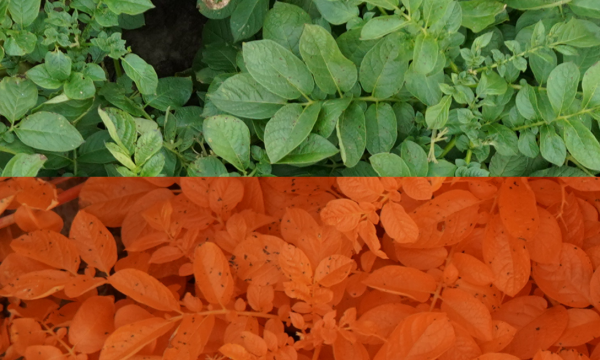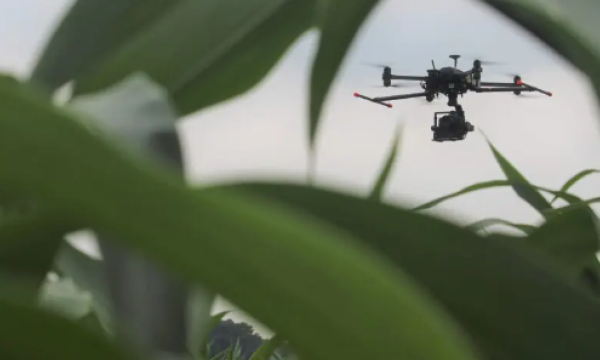General ILVO launches Test and Experiment Facility 'AgrifoodTEF' to accelerate applications of AI, robotics and data in agrifood.
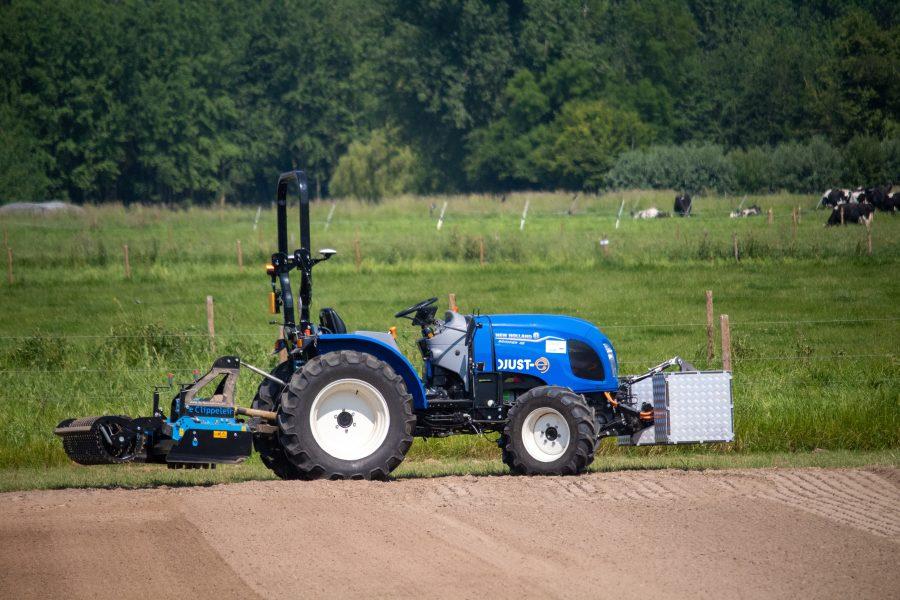
ILVO launches an open Test and Experiment Facility (TEF) for companies to accelerate innovations with artificial intelligence, data and robotics in agrifood to the market. Specifically, it offers companies infrastructure and services such as prototyping, image analysis, algorithm training and testing under realistic practical conditions. The Flemish AgrifoodTEF will receive a total of 5 million euros for this from Europe (Horizon), the Flemish government (Department of Economy, Science and Innovation) and ILVO itself.
At AgriTechDag '23 at ILVO in Merelbeke, visitors got a taste of the acceleration the TEF can achieve. Three new prototypes for the Flemish agricultural market made their public debut in a chain of live demos.
First electrically powered autonomous tractor: Djust-E
ILVO and mechanisation company Verschueren converted an existing diesel model tractor from CNH into an all-electric, self-propelled model. The first one in Flanders. To do so, they made, among other things, a new chassis and a front linkage with an exchangeable battery pack.
In the future, power sources such as fuel cells or a generator that runs on hydrogen or methanol could fit here. Propulsion will remain electric. That makes the concept future-proof for the Flemish market. - Simon Cool
In order to drive, brake, adjust the linkage and control implements autonomously and thus without a driver, ILVO equipped the tractor with custom-written software, sensors and actuators. ILVO chose a compact tractor for several reasons. Such a relative lightweight is less stressful for the soil. At the same time, it symbolises the future trend change from ever heavier machines with larger working widths to, once again, smaller machines that can work the field autonomously, day and night, with many at a time.
We helped design, build and perform extensive testing on this prototype. A good example of the services the Agrifood TEF can offer to companies. - Simon Cool
Smart planting machine remembers and shares where plants are located
During the demo, ILVO also demonstrated the prototype of a smart planting machine, developed in collaboration with the company Lauwers. The special feature is that the planting machine is equipped with a sensor that, during planting, detects the moment each plant goes into the ground and stores their GPS coordinates (measured by the GPS antennas on the planting machine) in the cloud. That planting data enables a whole chain of innovative precision operations.
Robot uses planting data to weed very precisely
This became clear in the final part of the demo series. The CIMAT robot, equipped with an 'ordinary' hoeing machine and a prototype precision hoe developed by Vanhoucke in collaboration with ILVO, autonomously (and electrically) hoeed away completely flawlessly the weeds between the planted rows as well as between the cabbages in the rows. For this, it relied on GPS data from the smart planting machine.
Reinout Godaert (ILVO): "Capturing and sharing plant data makes precise, mechanical hoeing possible in a cost-efficient way. If the computer knows where the plants are, it can very easily create a task map that allows a hoeing machine or other implement to remove weeds in a site-specific manner. This is a quick-win that makes precision agriculture more quickly usable in practice."
Indispensable step: data sharing
An essential link in this process is data sharing and integration from different sources. With DjustConnect, the agrifood sector has a data-sharing platform that can provide the necessary services and guarantees. Data ownership, privacy and security are neatly arranged. More information: www.djustconnect.be
Robot meanwhile captures data for faster machine learning (AI)
The CIMAT robot is an autonomous driving, multifunctional robotic platform that can be equipped with various standard implements as well as cameras for data capture. During mechanical weed control, the robot took photos that are used to train an AI model to recognise weeds.
Simon Cool (ILVO): "Thanks to the plant data, we can train the models in a semi-automatic, and therefore faster way. The self-learning algorithms learn that everything in the images is weeds, except what is at the exact planting locations. This saves us a lot of labour hours and costs."
Sustainability and digitisation go hand in hand
All innovations shown during the AgriTechDag are the result of services offered by ILVO in the new AgrifoodTEF.
Europe and Flanders are committed to the twin transition between sustainability and digitalisation with a view to improving for climate and environment. The potential of technologies involving data, robotics, drones and artificial intelligence is also great in the agri-food sector. Moreover, Flanders has an interesting ecosystem of technology companies and research centres specialising in robotics and artificial intelligence. Only they have not always discovered the agrifood sector yet.
Jürgen Vangeyte (ILVO): "With funding from Europe and Flanders, we can actively support these companies to develop innovative agrifood solutions. This should not only lead to more sustainable food production but will also improve the competitiveness of our companies."
ILVO's AgrifoodTEF is a Flemish satellite within the European AgrifoodTEF project. More information: www.agrifoodtef.eu
The AgrifoodTEF in pictures
In the new series Z-Agrifood on Kanaal Z, you get to see examples of services offered by ILVO's AgrifoodTEF. Three episodes are already available.

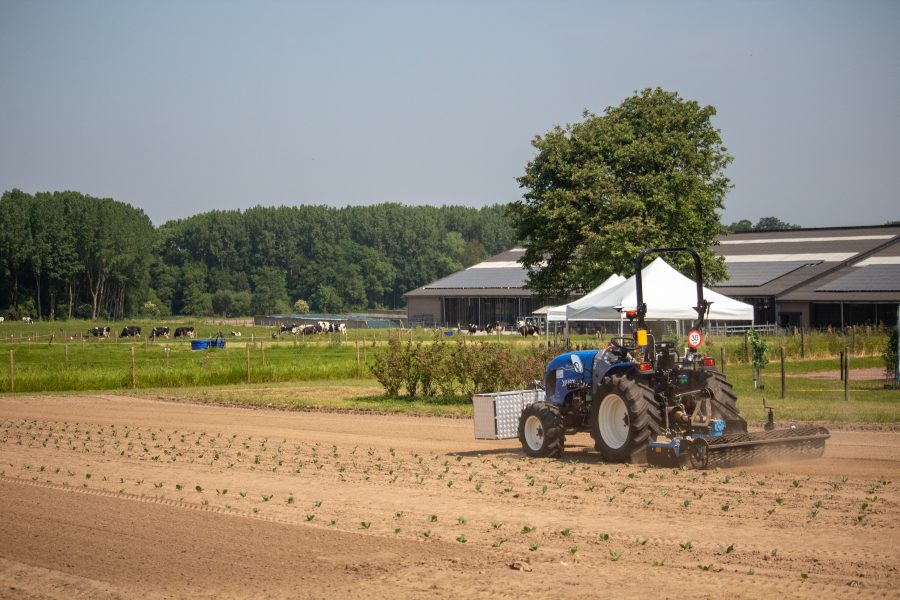
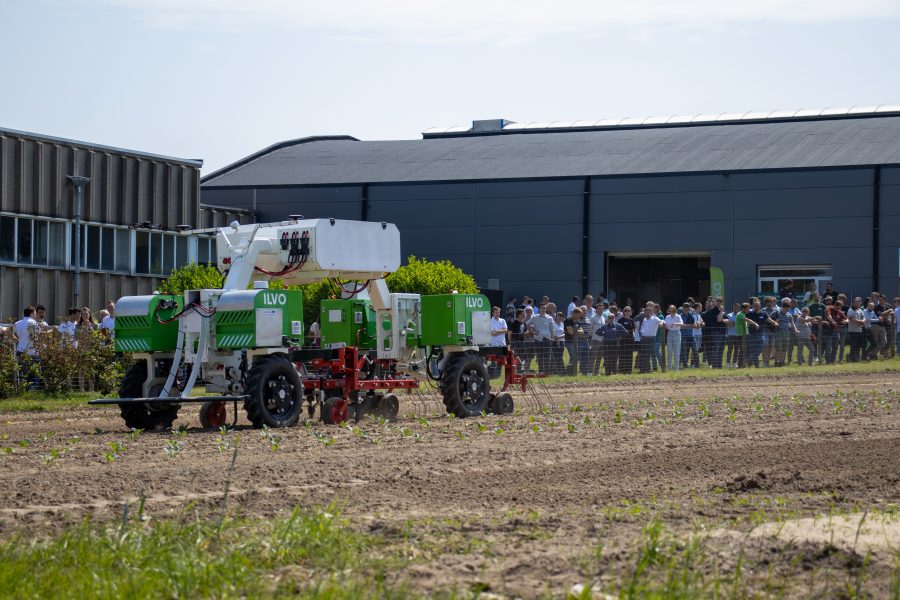
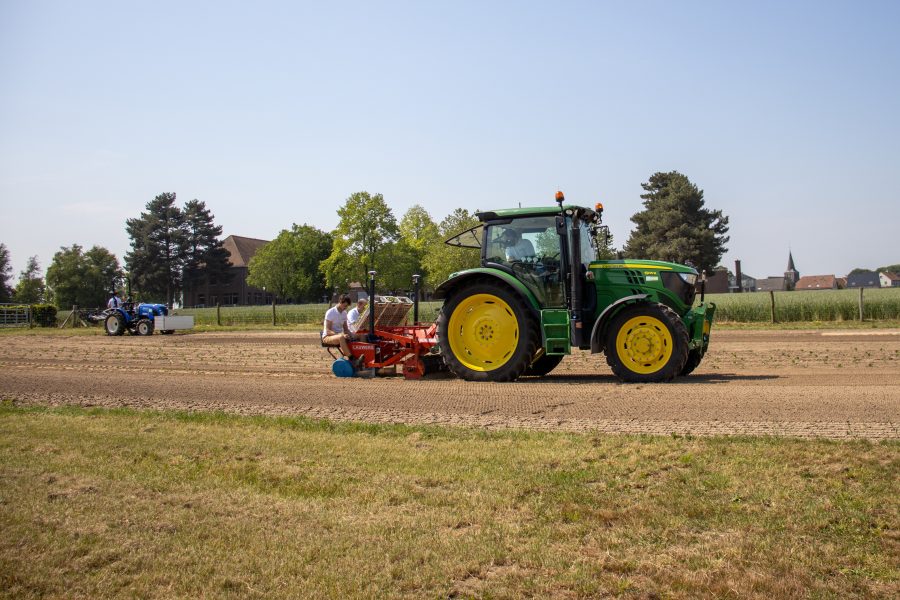
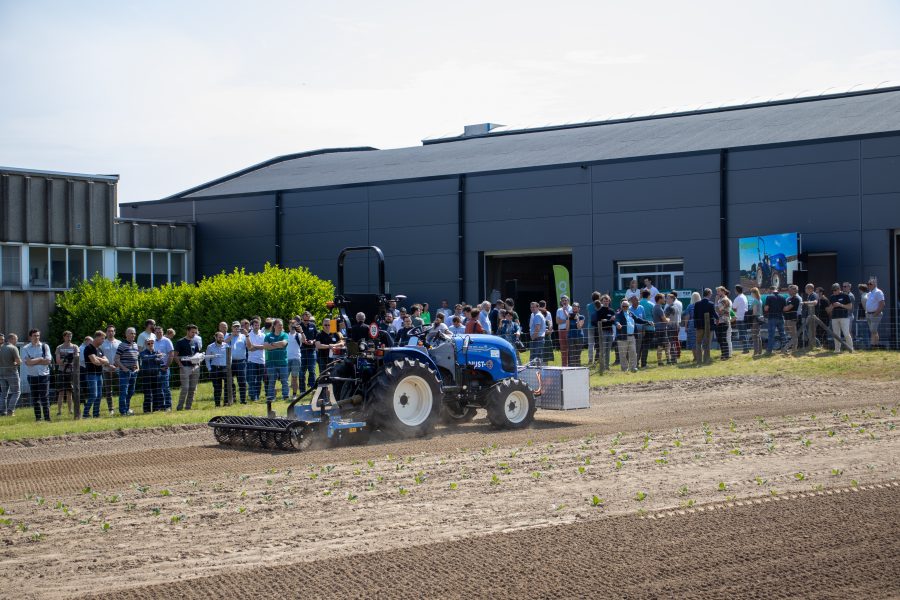
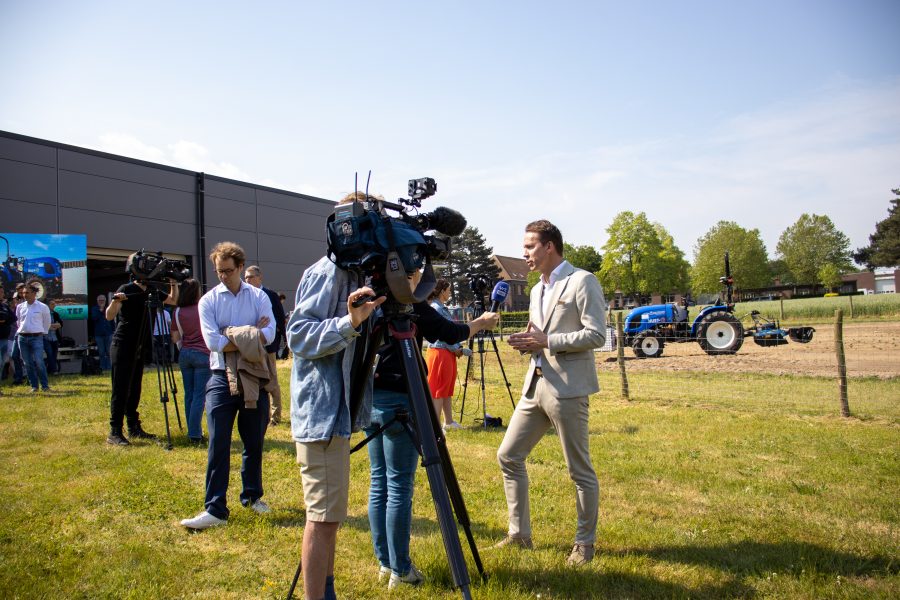
Contact
ILVO communications: Nele Jacobs
Djust-E and the innovations demonstrated: Simon Cool, ILVO research engineer
AgrifoofTEF: Marijke Hunninck, ILVO-AgrifoodTEF manager & Jürgen Vangeyte, ILVO scientific director of Agricultural engineering
DjustConnect: Stephanie Van Weyenberg, DjustConnect supervisor
